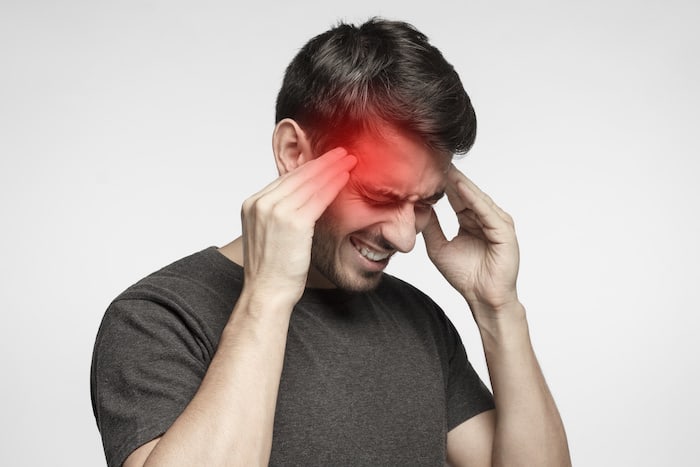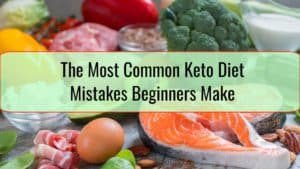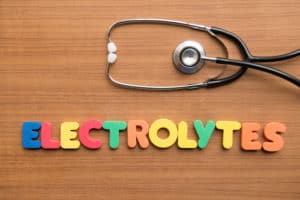The ketogenic diet is popular and helps in accelerated weight loss. Some people experience a headache and call it a Keto Headache.
Some people experience uncomfortable side effects when first starting the diet. Keto Headaches are one of the most common symptoms.
This article will help you know the causes of Keto headaches on the diet and ways to prevent and treat them.
If you are new to this diet and are getting headaches, brain fog, or mental fatigue, don’t be surprised or overly concerned.
The good news is that these symptoms are temporary.
Hence, It is important to understand what a keto diet is.
WHAT IS KETO DIET?
More fat metabolism as compared to carbohydrates and fats leads to ketone body production. The same happens in the keto diet also. The major source of energy shifts from carbohydrates to fats.
This state of ketosis accelerates fat metabolism and weight loss.
It takes 48 hours for the brain to switch from glucose to ketone bodies. Ketosis helps the body prevent using protein, from muscle, for gluconeogenesis to make glucose.
The Keto diet speeds up the weight loss process as it suppresses your appetite, helps you control your cravings, and improves your insulin resistance that is why the keto diet helps even without a workout regimen.
The Keto diet works efficiently even without a workout regimen. As the shift from carbohydrates to fat as a source of fuel leads to the production of ketone bodies.
Many studies have found that weight loss through the keto diet is 2-3 times faster as compared to other diets.
Because your body is probably used to consuming far more carbohydrates than what’s allowable on the keto diet, and because carbohydrates are your body and brain’s primary fuel source, the swap from carbs to fat can be a bit bumpy for some.
Reasons for headaches on a keto diet?
While you begin with the diet several factors may cause keto headaches.
Low blood sugar levels.
Glucose, a type of carb, is the main source of fuel for your body and brain. The major source of energy shifts from carbohydrates to fats.
This state of ketosis accelerates fat metabolism and weight loss.
The keto diet drastically reduces your carb intake, replacing it with fat. This shifts your body into Ketosis. This leads to a metabolic state in which you burn fat as your primary source of energy.
When you start the diet, your body begins relying on ketone bodies instead of glucose, which can cause your blood sugar levels to drop. In turn, this may lead to low blood sugar.
This transition into ketosis may stress your brain, which could result in mental fatigue, or brain fog as well as headaches.
Dehydration :
As the body attains ketosis and this leads to frequent urination. This leads to dehydration, one of the most common side effects of the keto diet.
During this transition, your body depletes its stored form of carbs, called glycogen. Given that the glycogen in your body is bound to water molecules, it releases water when it’s used up.
Furthermore, your body produces less insulin — a hormone that helps absorb glucose from your blood — on keto because you consume fewer carbs. A drop in insulin levels can affect electrolytes, such as potassium and sodium, which play key roles in hydration.
Toxins from Stored Fat
When your body begins to use fat for fuel instead of glycogen, it reaches your fat stores. But these fat stores also store toxins. As the body breaks down its fat, these toxins are released into your bloodstream, potentially causing headaches, dizziness, and fatigue.
Electrolyte Imbalance
Also, when you cut way back on eating carbs, your body makes less insulin. Since insulin’s job is to process the glucose in carbs, when you stop eating carbs, your body needs and thus produces less insulin. With less insulin in your system, your kidneys excrete more sodium, one of the electrolytes that regulate your hydration(4). This sodium excretion can throw off the balance of other essential electrolytes too, such as potassium and magnesium. This imbalance is one of the main reasons people suffer keto-flu symptoms. If you find yourself getting a headache while on keto, it may be related to sodium loss.
Other potential causes
Several other factors may increase your risk of headaches on the keto diet.
These include the overuse of medications, diuretics, and other drugs that promote dehydration, as well as your age and lifestyle factors like poor sleep, stress, and skipping meals.
Tips to treat or prevent keto headaches
Following are several specific tips:
- Drink plenty of water- As the initial phases of keto involve water loss, it’s important to drink adequate fluids. Aim for at least 2 liters of water each day.
- Limit your alcohol intake- Alcohol is a diuretic, which means it makes you urinate more often and may increase your risk of dehydration.
- Eat more low-carb, water-rich foods- Cucumbers, zucchini, lettuce, celery, cabbage, and raw tomatoes have a high water content, which can help you stay hydrated. Some of them are also good sources of electrolytes.
- Eat more electrolyte-rich foods. Keto-friendly foods like avocados, spinach, mushrooms, and tomatoes are high in potassium. Similarly, almonds, kale, pumpkin seeds, and oysters are high in magnesium and suitable for keto.
- Avoid intense exercise- Refrain from intense workouts during the initial days of keto, as they can stress your body and increase your likelihood of headaches.
- Eat Enough Fat -Coming off of a high-carb diet, it may seem counter-intuitive to eat so much fat. 70 to 80 percent of your daily calories must come from fat). It’s also your best bet for counteracting a low blood-sugar headache and managing hunger.
Bottom line
Fear of the keto headache alone should not be reason enough to deter people from trying the keto diet. Instead, you should
continue to eliminate entire food groups—beans, grains, fruits, and vegetables.
However, for many, the benefits of the keto diet can outweigh the potential downsides. Educated, preventative steps reduce the risk of the keto headache, and easing into low-carb eating can make the transition period feel more manageable.
As with any side effects of a new diet, concerns are best handled by a health care professional.
Get started with your Weight Loss Journey today and take a step towards a healthy lifestyle! Stay tuned for inspiring Weight Loss Journeys, and Delicious Recipes! Also, don’t forget to follow us on Instagram for the daily dose of Health, and Wellness content!









